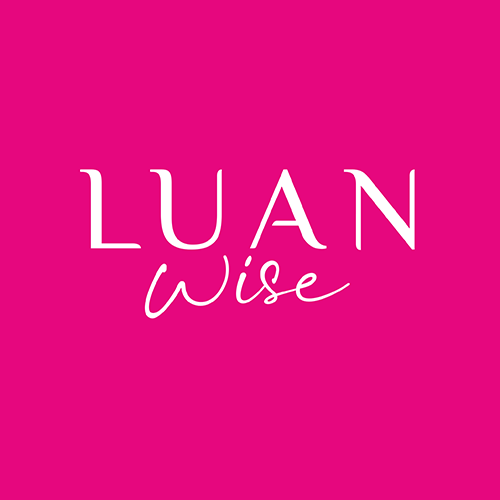You’ve possibly heard about the controversy surrounding Bud Light and Dylan Mulvaney, the transgender TikTok star’s collaboration. Here’s a summary of what’s been happening, and some lessons for brands working with influencers:
Who is Dylan Mulvaney?
Dylan Mulvaney is an actor who gained prominence through her video diary series titled “Days of Girlhood” on TikTok. In this raw and relatable series, Mulvaney fearlessly shares the ups and downs of her transition. As a result, she captured the attention of millions. Along the way, she has collaborated with various brands, including Ulta Beauty, Instacart, and Kate Spade.
Bud Light and Dylan Mulvaney’s Collaboration
Anheuser-Busch, the brewing giant behind Bud Light, teamed up with Mulvaney for their “Easy Carry Contest.” The campaign invited participants to showcase their strength by carrying as many beer cans as possible, for a chance to win $15,000. Mulvaney appeared in a sponsored video wearing an Audrey Hepburn-inspired outfit and playfully referencing March Madness. Additionally, Bud Light released a line of Pride-themed cans with different pronouns to celebrate Mulvaney’s first anniversary since transitioning.
The Bud Light and Dylan Mulvaney Controversy Explodes
The right-wing faction in the U.S. erupted in outrage over Mulvaney’s partnership with Bud Light. The controversy was fueled by their aversion to anything labelled as “woke” or progressive. Conservative pundits and politicians misgendered and attacked Mulvaney, resorting to transphobic remarks and baseless accusations. Some even spread rumours that Anheuser-Busch had fired its entire marketing team due to the backlash, a claim swiftly debunked by the Associated Press.
Anheuser-Busch’s Response
Anheuser-Busch initially released an uninspiring statement that failed to address the controversy or show support for Mulvaney. However, as the pressure mounted and Bud Light sales declined, the company appeared to backtrack. Two marketing executives were placed on leave, sparking criticism from LGBTQ+ advocates. Anheuser-Busch then announced a $200,000 donation to the Communities of Color Initiative under the National LGBT Chamber of Commerce, aimed at supporting QTPOC-owned businesses and promoting economic equality.
Mulvaney’s Reaction and What’s Next
Mulvaney broke her silence about the uproar in a candid video. She expressed her disassociation from the hate and cruelty thrown her way and emphasised her desire to get back to making people laugh. Looking ahead, Mulvaney hopes to use her newfound platform to uplift other trans individuals, calling for more inclusivity in brand partnerships. She also reflected on her future, striving for career longevity and finding happiness beyond the confines of social media.
The Senate Gets Involved
Senators Ted Cruz and Marsha Blackburn wrote an open letter to Anheuser-Busch expressing their concerns about the collaboration with Dylan Mulvaney. The letter accused the company of pushing a “radical political agenda” and demanded answers regarding the decision-making process. Critics argued that the senators’ involvement was an unnecessary intrusion into corporate partnerships and an attempt to score political points.
Public Support and Backlash for Bud Light and Dylan Mulvaney
While the controversy attracted its fair share of transphobic comments and hate, it also sparked a wave of support for Dylan Mulvaney and the LGBTQ+ community. Many social media users rallied behind her, praising her courage and talent while condemning the hate she faced. Advocacy organisations, influencers, and fellow creators also stood in solidarity. This emphasised the importance of trans visibility and inclusion in mainstream media.
The Importance of Representation and Inclusion in Media and Advertising
The Dylan Mulvaney and Bud Light controversy highlighted the challenges faced by both transgender individuals and brands. Specifically in navigating the ever-evolving landscape of social media and public perception. The collaboration between Bud Light and Dylan Mulvaney highlighted the significance of representation and inclusion in media and advertising. Brands should strive to accurately reflect and represent diverse communities, including transgender individuals, to foster a more inclusive society. By aligning themselves with causes and individuals that promote inclusivity, brands can drive positive change and make a lasting impact.
Bud Light’s Backtracking and the Impact on Brand Integrity
Staying true to one’s principles and maintaining integrity is key. The case of Bud Light’s perceived backtracking serves as a valuable lesson in the importance of consistency and unwavering support. When a brand initially takes a stance or partners with individuals representing a marginalised community, it is essential to commit fully to that decision. Backtracking or appearing indecisive can undermine the authenticity of the brand’s message and lead to a loss of integrity.
In the case of Bud Light, their initial collaboration with Dylan Mulvaney was seen as a positive step towards inclusivity and representation. However, as the controversy unfolded, Bud Light’s response seemed uncertain and reactionary. This wavering response left room for interpretation. Many assumed that their actions were merely a PR move to appease the audience, rather than a genuine commitment to support marginalised groups. In a time where consumers increasingly value brands that stand up for social causes, the perceived lack of integrity can result in a loss of trust and loyalty. To avoid such pitfalls, brands must prioritise clarity and consistency in their actions and messaging. This means thoroughly researching and understanding the issues at hand, committing to supporting marginalised communities with sincerity and staying firm in their stance, even in the face of controversy.
Lessons for Brands and Individuals from Bud Light and Dylan Mulvaney
That being said, brands should still be prepared for potential challenges and backlash when taking a stance on social issues. By anticipating potential controversies and developing robust strategies to address them, brands can navigate challenging situations with greater integrity and ensure that their support remains unwavering.
By applying these learnings, brands can foster inclusivity, support marginalised communities, and contribute to a more accepting and diverse society.
As for Dylan Mulvaney, she continues to create content and inspire others through her social media platforms. Her resilience and determination to spread laughter and acceptance serve as a powerful reminder of the importance of representation and diversity in all forms of media.
The Dylan Mulvaney and Bud Light controversy stands as a significant moment in the ongoing struggle for trans visibility and acceptance. While it faced backlash from conservative factions, it also showcased the outpouring of support from communities advocating for LGBTQ+ rights. As the dust settles, the lessons learned from this incident will hopefully guide brands and individuals toward a more inclusive and compassionate future.

